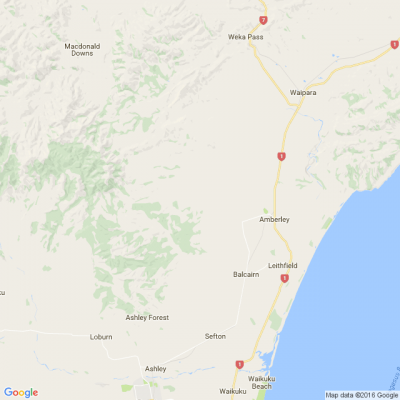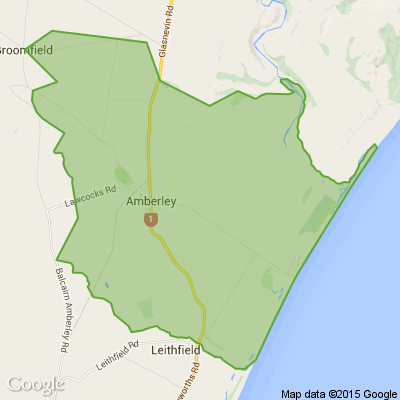Centralised healthcare lacks ‘local accountability’
By David Hill, Local Democracy Reporter
Bringing some healthcare decisions back into communities will help plug the gap in local accountability, say two North Canterbury mayors.
Waimakariri mayor Dan Gordon and Hurunui mayor Marie said they were pleased Te Whatu Ora Health New Zealand was considering local solutions for healthcare, but wanted to know more details on the plans.
In a major shakeup of the health system in 2021, locally-elected district health boards were scrapped and replaced with the centralised Te Whatu Ora.
However, in an interview with RNZ in February, Health Minister Dr Shane Reti indicated some health decision-making would return to the regions.
Responding to questions from Local Democracy Reporter, Reti said he expected to receive advice from the Ministry of Health soon.
This included future operating and funding models for primary and community care.
‘‘Community involvement in health service planning, with local solutions to local health challenges will remain essential to the delivery of health services,’’ he said.
‘‘These local groups should be involved in the design and delivery of services, so the healthcare focuses on the needs of, and is effective for, the community.’’
Local primary health organisations (PHOs), such was the Waitaha Canterbury PHO, played a key role in supporting their local communities and were providing input into Health NZ’s primary care development programme, he said.
The Government has also signalled Iwi-Māori Partnership Boards will play a key role in supporting high-quality community-led health care.
Gordon said since the demise of the Canterbury District Health Board (CDHB) there were gaps in ‘‘local accountability’’.
He is the council’s representative and deputy chairperson of the Waitaha Canterbury PHO board.
‘‘I have found since the centralsation of healthcare it has been a struggle to find local accountability. Even a local contact or authority to speak to.
This must be addressed.
Having a local voice close to the issues is vital.’’
The lack of a local board chairperson meant concerns would often be raised directly with the health minister, Gordon said.
‘‘The important thing for me is the patient and ensuring they are cared for and their needs are met, and if we have an issue, where do we go to get answers?’’
Black said retaining a local voice in healthcare was crucial, particularly for rural districts.
‘‘The important thing is we retain what we have and if we can increase health provision, that is where I would be lending my support.’’
She said the Hurunui District Health Services Group had been making good progress working with the former CDHB.
But this work had been on the backburner since the board was dissolved, ‘‘so whether there is the energy to reconsider this, I don’t know’’.
■ LDR is local body journalism co-funded by RNZ and NZ On Air.
Poll: Are Kiwis allergic to “exuberance”? 🥝
In The Post’s opinion piece on the developments set to open across Aotearoa in 2026, John Coop suggests that, as a nation, we’re “allergic to exuberance.”
We want to know: Are we really allergic to showing our excitement?
Is it time to lean into a more optimistic view of the place we call home? As big projects take shape and new opportunities emerge, perhaps it’s worth asking whether a little more confidence (and enthusiasm!) could do us some good.

-
0% Yes
-
0% Maybe?
-
0% No
Poll: Are our Kiwi summer holidays helping us recharge, or holding the economy back? ☀️🥝
There’s growing debate about whether New Zealand’s extended Christmas break (and the slowdown that comes with it) affects productivity.
Tracy Watkins has weighed in ... now it’s your turn. What’s your take? 🤔

-
73.1% We work hard, we deserve a break!
-
15.6% Hmm, maybe?
-
11.3% Yes!
The latest product recalls
We are bringing you the latest list of recalled products from across the country. Make sure you aren't using these at home!
Click on the blue text to learn more about that particular product and why it was recalled.
Food and household item recalls:
Akaroa King Salmon brand Mānuka Cold Smoked Slices and Trim
Tom & Luke Low Carb Snackaballs
Woop brand Pistachio Dukkah
Product Recalls: Infant care and clothing
Zummi Monaco 4-Wheel Travel System - Sold at Farmers
Product Recalls: Toys
⚠️ Asbestos risk in Galt branded Mini Makes Sand Stickers
⚠️ Asbestos risk in Licensed Sensory Activity Sets: Frozen, Bluey and Paw Patrol - Sold at Kmart
⚠️ Asbestos risk in Make Your Own Unicorn Sand Ornaments- sold at Kmart
⚠️ Asbestos risk in Coloured Sand for Unity Ceremony - 200 gram bags
⚠️ Asbestos risk in Coloured sand by Creative Sand
⚠️ Asbestos risk in MIKI Sand Art Set
⚠️ Asbestos risk in Rainbow Sand Art Toy- sold at various discount stores nationwide
⚠️ Asbestos risk in Craft Sand 380g
Pop & Surprise Playset- sold at Kmart
Product Recalls: Cosmetics
Endota Mineral Protect SPF50 Sunscreen
Bondi Sands Zinc Mineral Broad Spectrum UVA & UVB Protection Sunscreen SPF 50+ Face Lotion 60ml and Body Lotion 120ml
Product Recalls: Electronics
E-LOK Gateway Wall Plug
Mecca 240V Single Vertical Heated Towel Rail NRV902H
3M ™ Versaflo ™ TR-802E Powered Air Purifying Respirator Motor/Blower
Sigenergy- SigenStor EC 8.0/10.0/12.0kW SP AU Energy Controllers with quick connect AC plug
Sylvan SLG02 Wif Hub power adapter
Product Recalls: Other
⚠️ Asbestos risk in Handmade Gummy Worm earrings and Salted Pretzel earrings sold at Joy's Handmade Boutique
Ello Glass 10pc Meal Prep Set - sold at Costco
Check the New Zealand Transport Agency's handy vehicle recall list here.
See past months' recalls. Stay safe, neighbours!













 Loading…
Loading…